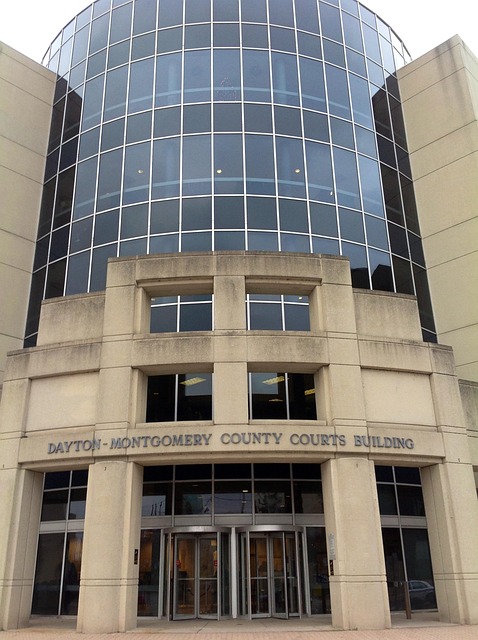Regulatory compliance goes beyond law adherence, involving understanding and following industry-specific guidelines to avoid legal penalties, protect consumer interests, and maintain ethical practices. Non-compliance leads to severe consequences like Prosecutorial Misconduct and Ethical Violations, reputational damage, and business instability. Robust internal controls, transparent reporting, and employee education are crucial for compliance programs to mitigate risks associated with these violations. Businesses must proactively implement such measures to ensure legal adherence, maintain public trust, and foster long-term stability.
Regulatory compliance is a cornerstone of business success, ensuring operations align with legal standards. This article delves into critical aspects often overlooked in the regulatory landscape, focusing on prosecutorial misconduct and ethical violations. We explore how these issues arise, their profound impact on businesses, and essential strategies to steer clear of common traps. By understanding these complexities, companies can navigate legal consequences effectively, fostering a culture of integrity and compliance.
- Understanding Regulatory Compliance: Basics and Importance
- Prosecutorial Misconduct: Types and Impact on Businesses
- Ethical Violations: Common Traps for Companies to Avoid
- Navigating Legal Consequences of Non-Compliance
Understanding Regulatory Compliance: Basics and Importance

Regulatory compliance goes beyond mere adherence to laws and regulations; it involves understanding the intricate web of guidelines governing various industries. This is crucial for businesses and organizations to navigate successfully, ensuring they avoid legal pitfalls and maintain their integrity. Every industry, from healthcare to finance, has its own set of rules designed to protect consumers, ensure fair competition, and promote ethical practices. Non-compliance can lead to severe consequences, including hefty fines, damage to reputation, and even criminal charges.
An unprecedented track record of regulatory compliance is not just about steering clear of legal issues; it’s also about fostering trust with stakeholders. Businesses that prioritize ethical conduct and avoid prosecutorial misconduct or ethical violations are more likely to thrive in the long term. A robust compliance program involves staying informed about changing regulations, implementing robust internal controls, and encouraging a culture where employees at all levels understand their responsibilities. This approach not only helps in avoiding indictment but also ensures sustainable growth and operational efficiency.
Prosecutorial Misconduct: Types and Impact on Businesses

Prosecutorial misconduct refers to unethical or illegal actions taken by prosecutors during legal proceedings. This can include various types of conduct, such as fabrication of evidence, failure to disclose exculpatory information, and racial or gender bias in charging decisions. When businesses are caught in the crosshairs of such misconduct, the consequences can be severe. An unprecedented track record of ethical violations on the part of prosecutors may lead to a complete dismissal of all charges against the company, offering some measure of relief. However, the damage to the organization’s reputation and the disruption to its operations can be long-lasting.
For businesses navigating complex legal landscapes, understanding the potential for prosecutorial misconduct is crucial in mounting an effective white collar defense strategy. Proactive measures, such as robust internal compliance programs and transparent reporting structures, can help mitigate risks and ensure that ethical standards are upheld. In light of these considerations, it’s important to remember that maintaining integrity and transparency throughout legal processes is not just a best practice—it’s essential for safeguarding the future of any organization.
Ethical Violations: Common Traps for Companies to Avoid

Ethical violations can significantly impact a company’s reputation and financial health, especially in high-stakes cases where prosecutorial misconduct may come into play. To avoid these pitfalls, businesses must be vigilant in understanding and adhering to ethical guidelines across all stages of the investigative and enforcement process. Common traps include false disclosures, misleading evidence, and attempts to obstruct justice, which can lead to severe legal consequences.
A robust general criminal defense strategy involves proactively identifying and mitigating potential ethical violations. Companies should implement comprehensive compliance programs that educate employees on ethical conduct, provide clear reporting mechanisms for suspected misconduct, and establish independent oversight bodies. By doing so, organizations can navigate regulatory complexities more effectively, ensuring they remain on the right side of the law and maintain public trust.
Navigating Legal Consequences of Non-Compliance

Non-compliance with regulatory standards can lead to severe legal consequences for businesses across the country. When a company fails to adhere to the laws and regulations governing its respective business, it opens itself up to potential prosecution. Prosecutorial misconduct and ethical violations are serious matters that can result in hefty fines, business shutdowns, or even criminal charges for individuals involved.
These legal repercussions extend beyond monetary penalties. They can damage the reputation of a company, erode consumer trust, and disrupt operations. Moreover, white-collar and economic crimes often involve intricate financial schemes and complex legal arguments, making them challenging to navigate. As such, businesses must stay vigilant, implement robust compliance programs, and seek expert advice to mitigate these risks and ensure adherence to the law.
Regulatory compliance is a delicate balance that businesses must master to avoid costly legal repercussions, such as Prosecutorial Misconduct. By understanding the basics and importance of compliance, recognizing potential Ethical Violations, and navigating the consequences of non-compliance, companies can protect themselves from severe legal and reputational risks. Awareness and proactive measures are key to ensuring long-term success in an ever-evolving regulatory landscape.






